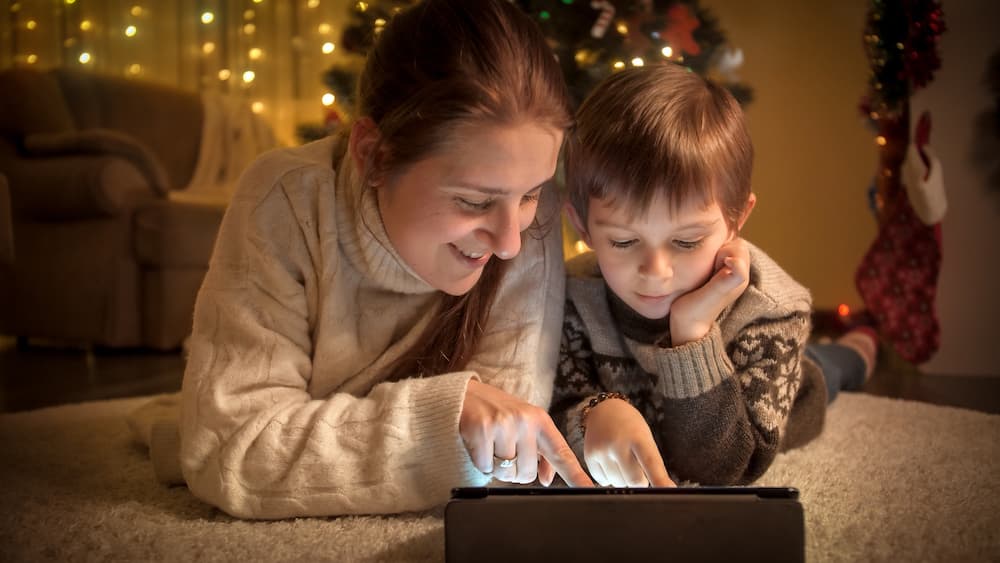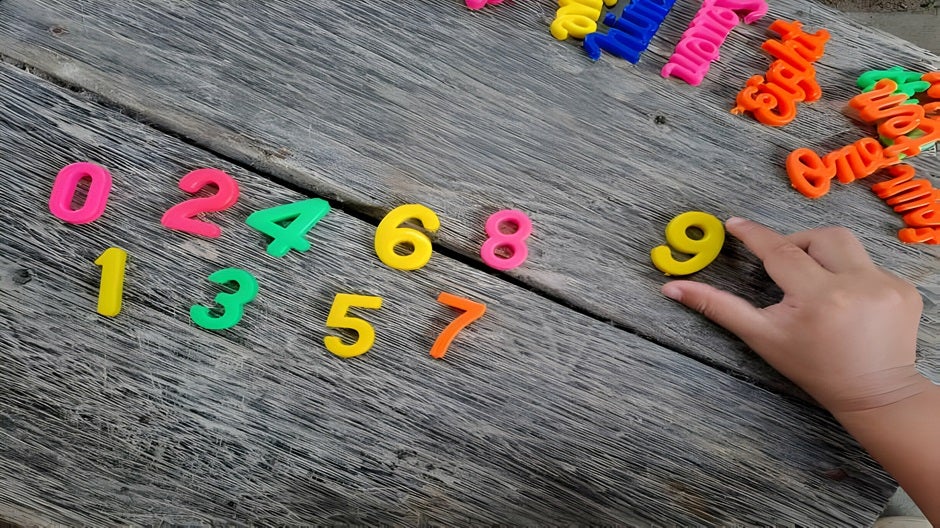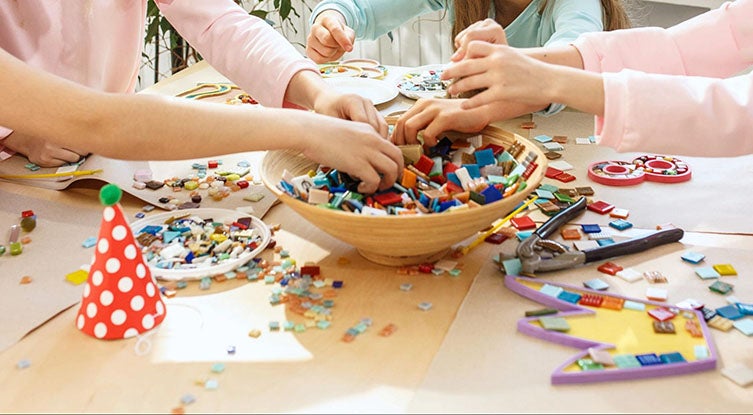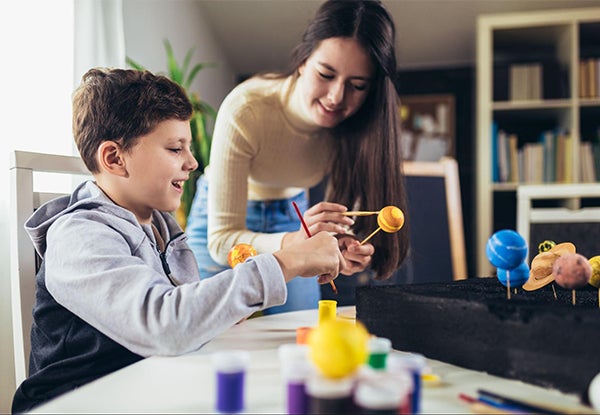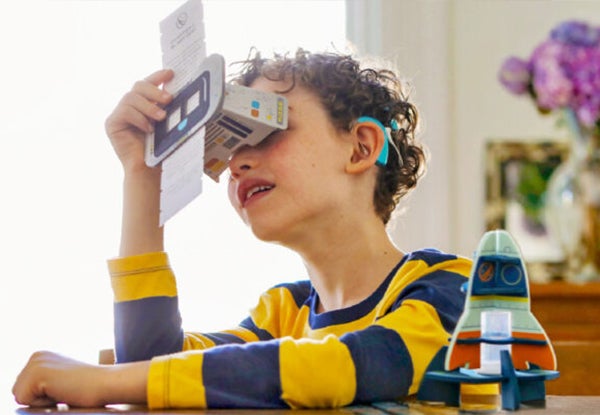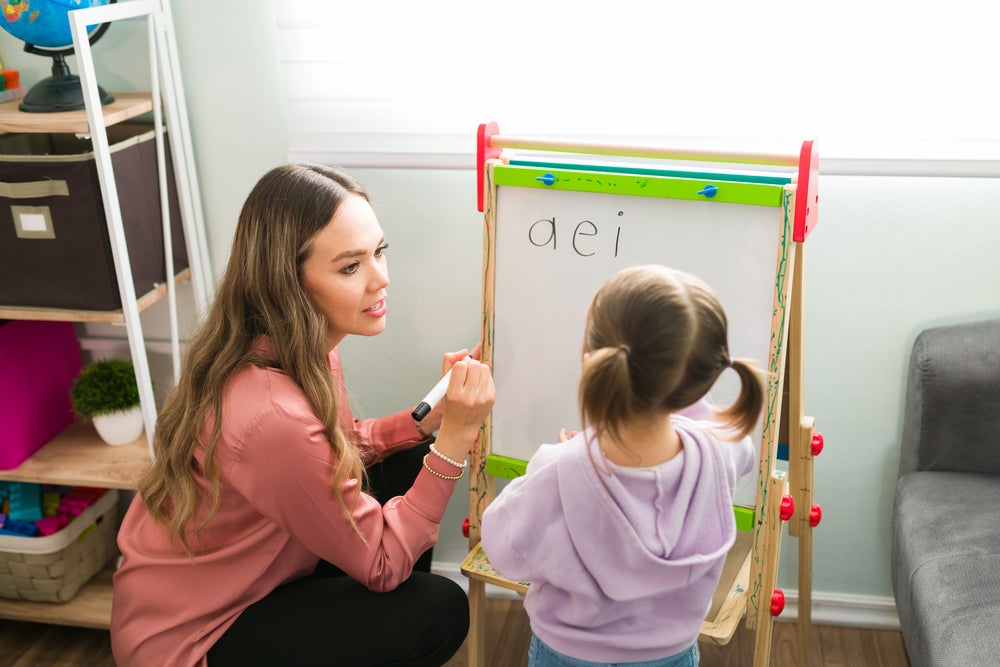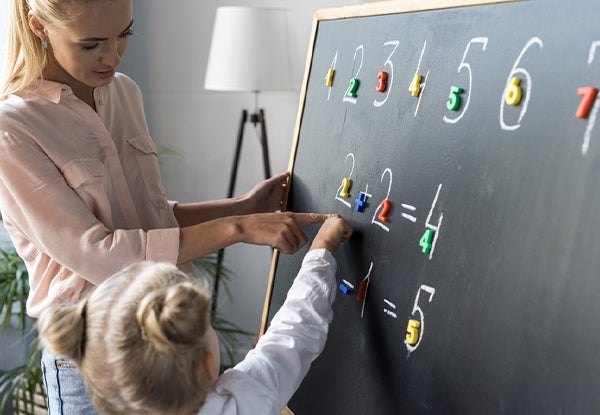Not all screen time is bad for kids. The details matter—not just whether your kids are playing with award-winning learning apps, but what’s coming next in their day and how you as a family use the time.
Interactive screen time, like learning apps and coding games, involves “minds on” engagement from the child. Passive screen time, like watching videos, is more of a “lean back” experience in which kids consume content without having to do anything. While it’s fine to have some of both, interactive content makes kids active participants in learning.
During the holidays, many kids spend a lot more time at home—and want to spend a lot more time on screens. If you’re looking for help managing your family’s screen time, we’ve got you covered with these tips from psychologist Dr. Sarah Bren.
The Short Cut
- Planning screen use ahead of time rather than reacting to kids’ requests can make the holidays easier
- Screens aren’t restful for kids! They’ll be tired after screen time, so plan accordingly
- Sharing screen time as a family can make it more beneficial
- Play-based learning apps like HOMER, codeSpark, and Learn with Sesame Street can entertain kids on screens while helping them build the 5 C’s that help them thrive in school and life
How to Manage Your Child’s Screen Time during the Holidays

1. Plan Ahead for a Balanced Screen Time Strategy
Even during the hustle and bustle of the holidays, take a moment to plan your screen time strategy. Recognize that every child is unique, and what works for one may not work for another. Consider your family’s values, routines, and each child’s needs and sensitivities when crafting a plan that feels balanced for everyone.
This might include setting limits around time of day (no screens after dinner), length of time (one or two hours per day), or type of screen time (one hour of video games or TV, but another hour for learning apps like HOMER or Learn with Sesame Street). Take stock of what’s worked for your family in the past, but don’t be afraid to experiment—your kids are always growing and changing!
2. Understand That Screen Time Isn’t Rest Time
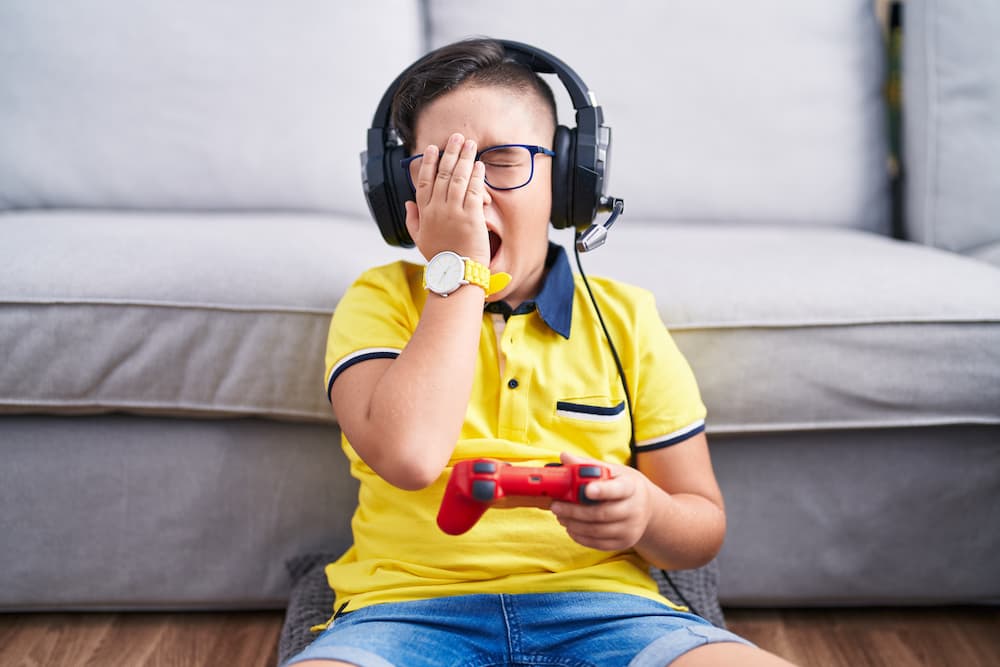
While screen time may offer physical rest, it’s essential to recognize that it doesn’t equate to mental rest. Prolonged screen use may impact cognitive functions like impulse control, flexibility, frustration tolerance, and patience. Setting realistic expectations for your child’s cognitive bandwidth after screen time helps avoid unnecessary frustration for both parents and kids.
Partly, this one is about managing your own expectations. If you let the kids play video games for two hours and expect them to be happy and rested afterward (they’re getting what they want, after all!), you may be frustrated if they’re upset about turning the games off.
But if you recognize that their brains may be tired and they’ll likely need a snack and a drink after screen time ends, it’s easier to keep your cool. And then you can see their emotions not as ingratitude but as the normal reaction of a tired, hungry, thirsty child responding to something they don’t like doing.
3. Plan for the Transition
Consider how you’re going to end a period of screen use, and what comes after it. Many types of screen use deplete kids’ resources more than they recharge them. So if you’re approaching a time your child will need a lot of cognitive resources (like having to regulate stimulation at a busy family gathering, or having to sit still and/or be on their best behavior for a stretch of time at a place of worship), build in time for them to recharge first.
It can help to set a timer the children can hear that lets them know screen time is over, and to build in a consistent next step like family belly breathing or reading a book.
4. Use Screens to Enhance Connection Time
Screens can be powerful tools for family bonding. Plan activities like a family movie night, playing digital games together, or engaging in a learning exercise together. Screens don’t have to always be an independent activity. In fact, the more we can engage with our kids while they’re using screens, the more it can be a tool for social skill development, language development, and relationship-building.
5. Avoid Using Screens as an Emotion Regulation Shortcut
While it may be tempting to use screens as a quick fix to soothe messy emotions, it’s essential to recognize the long-term impact of using screens as an emergency off switch. Teaching kids that screens can instantly turn off emotions skips the need to practice vital self-regulation skills. Instead, focus on guiding them through the process of understanding and managing their feelings, even if this feels messier in the moment.
6. Give Yourself a Break—Perfection Is Not the Goal!
With every “rule” there is a time and a place to break it! Sometimes we are just going to reach for the screen as a temporary solution—like when you’re at your in-laws and your kid is having a meltdown about dessert and you just know that defusing the chaos will be better for everyone (including you!).
Sometimes you’re going to lean on screens so you can actually get that holiday menu prepped, cooked, and on the table. Or maybe you just want to veg out too! Please don’t beat yourself up about it. It’s OK for kids to be on screens sometimes.
Remember—parenting happens in the aggregate. The key is to be mindful and intentional when you can be, so when life makes it hard to be intentional, we can give ourselves permission just to get through the moment, even if we have to be scrappy!
Healthy Screen Time with Begin
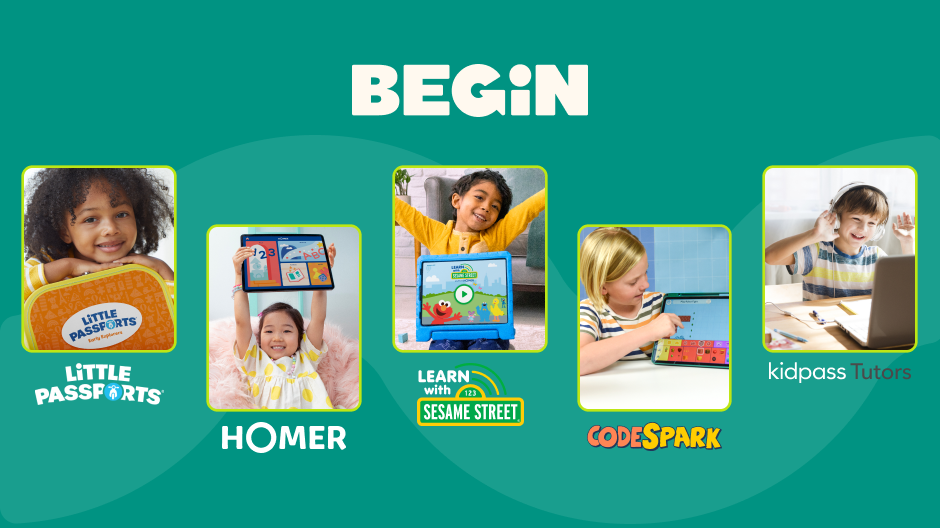
Begin’s family of award-winning learning products includes three apps for kids 2–10 that give you screen time you can feel good about. Early learners can have a blast while exploring reading, math, and creativity with HOMER or social-emotional learning through Learn with Sesame Street. And if your kids love gaming, codeSpark takes them from playing video games to creating them in just a week (no reading required!), through teaching the building blocks of coding.
Or for the best balance of screen time and hands-on play, try one of our premium memberships, which combine one or more apps with our curiosity-fueling Little Passports activity kits.
